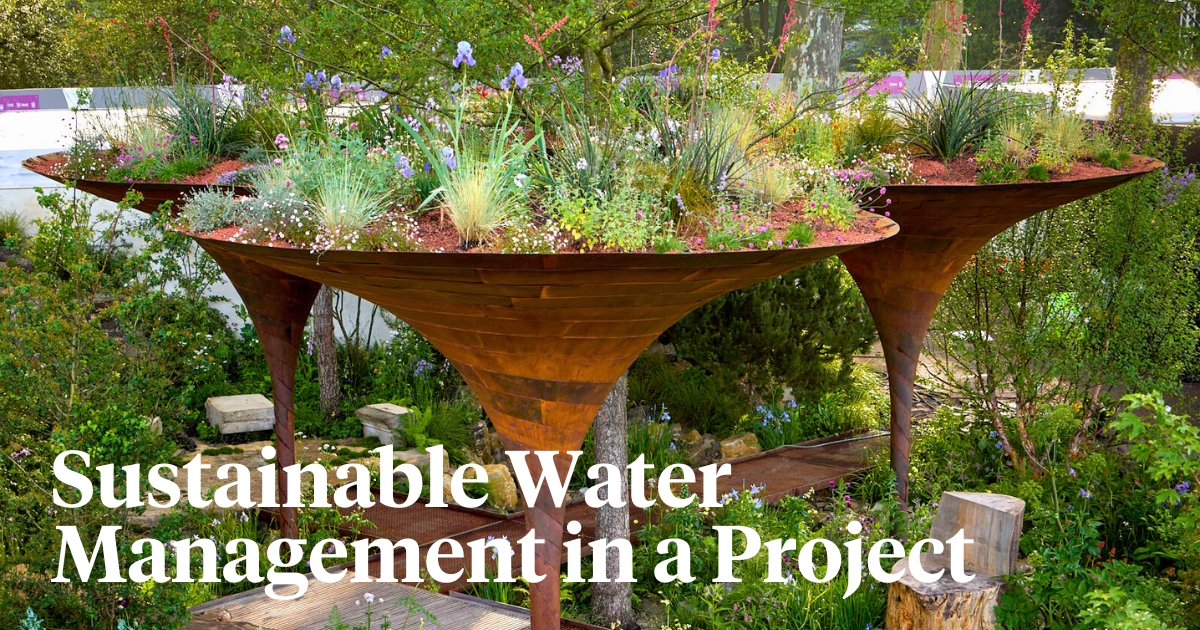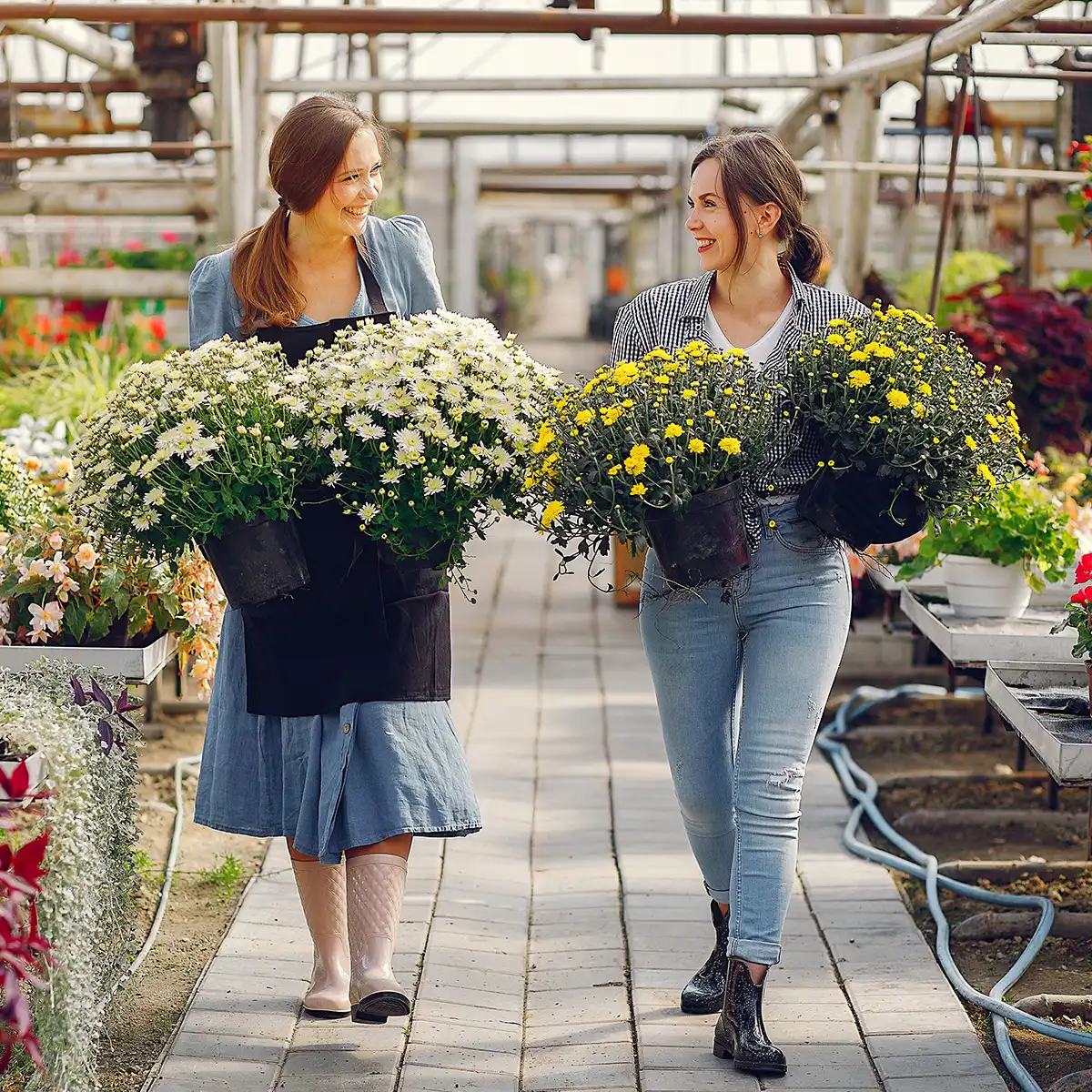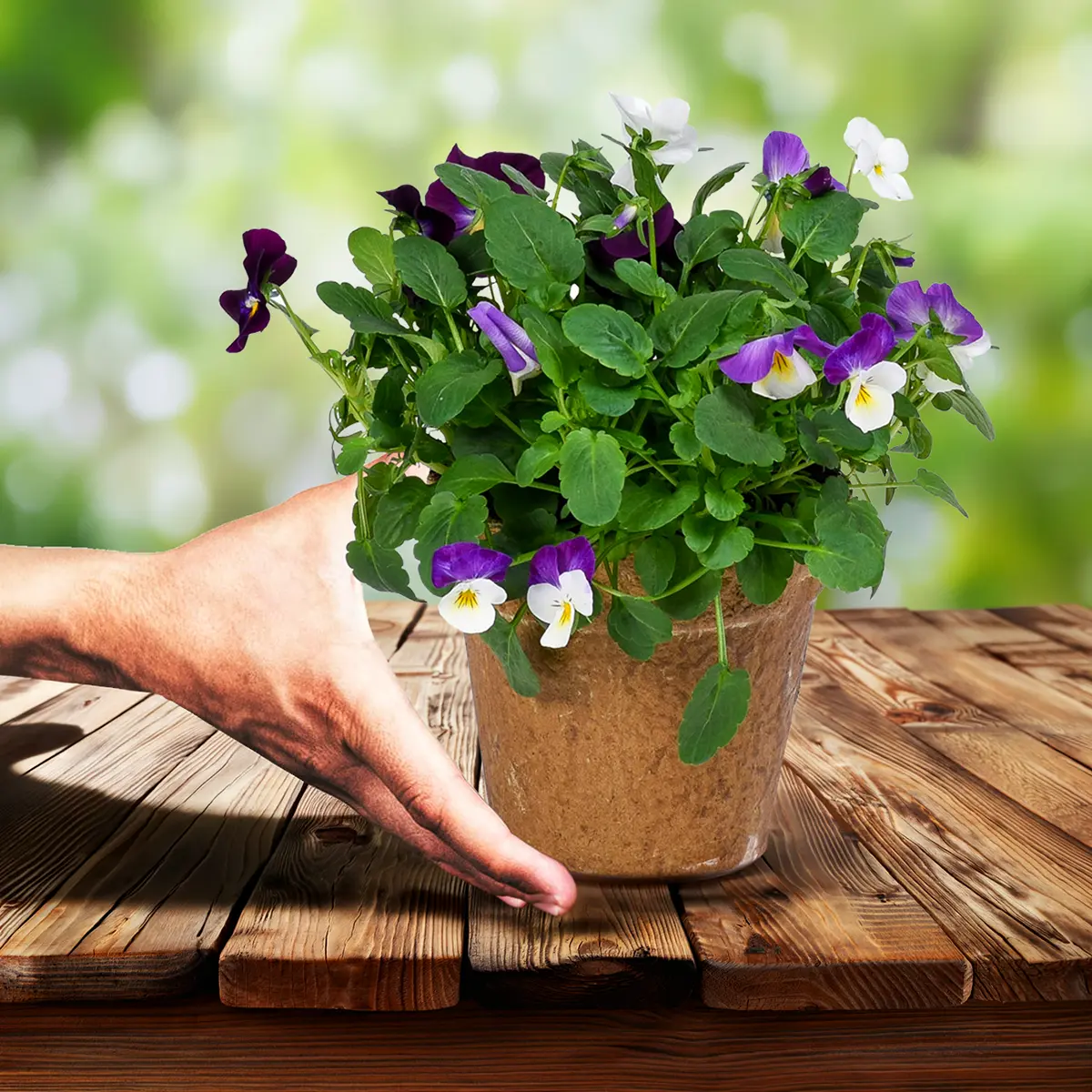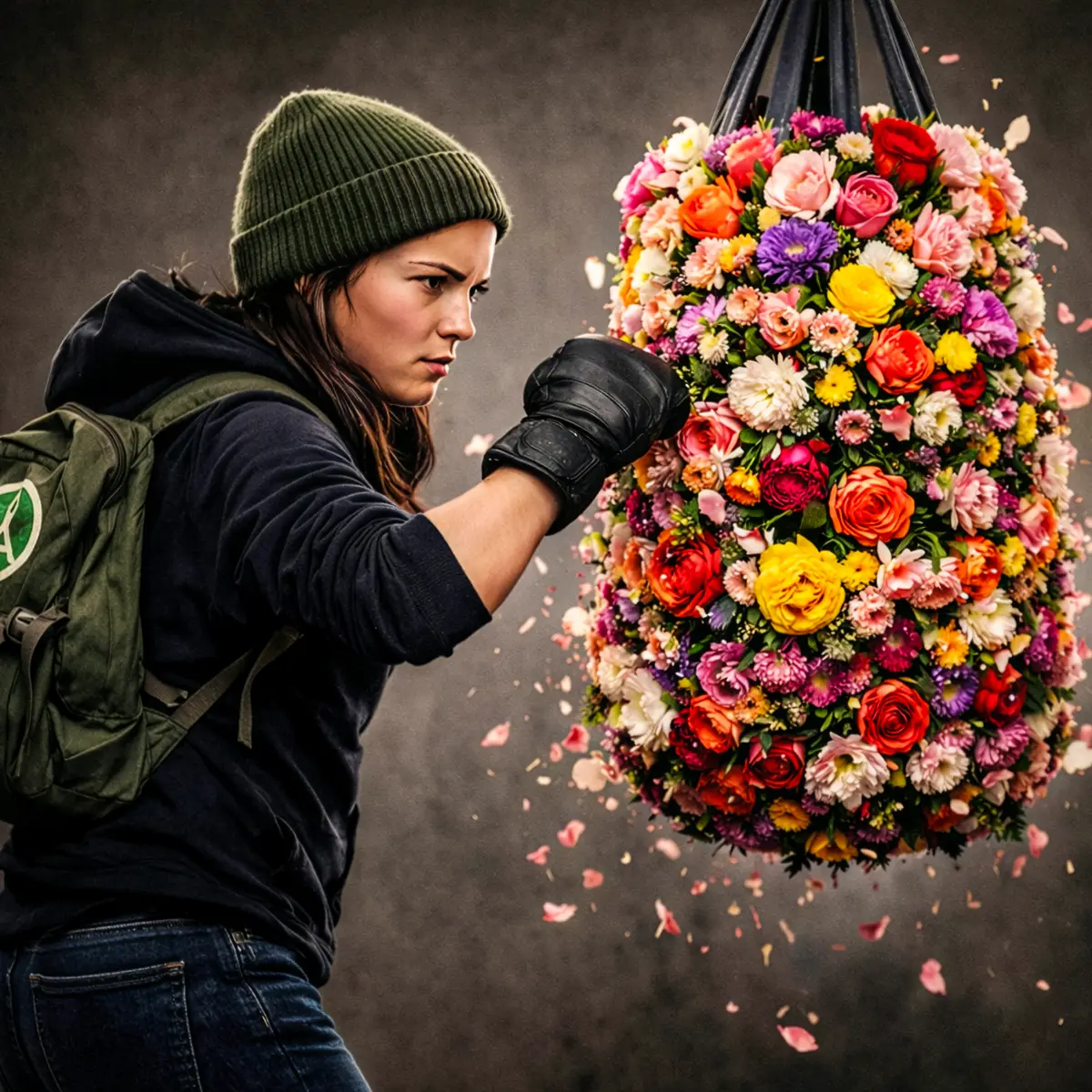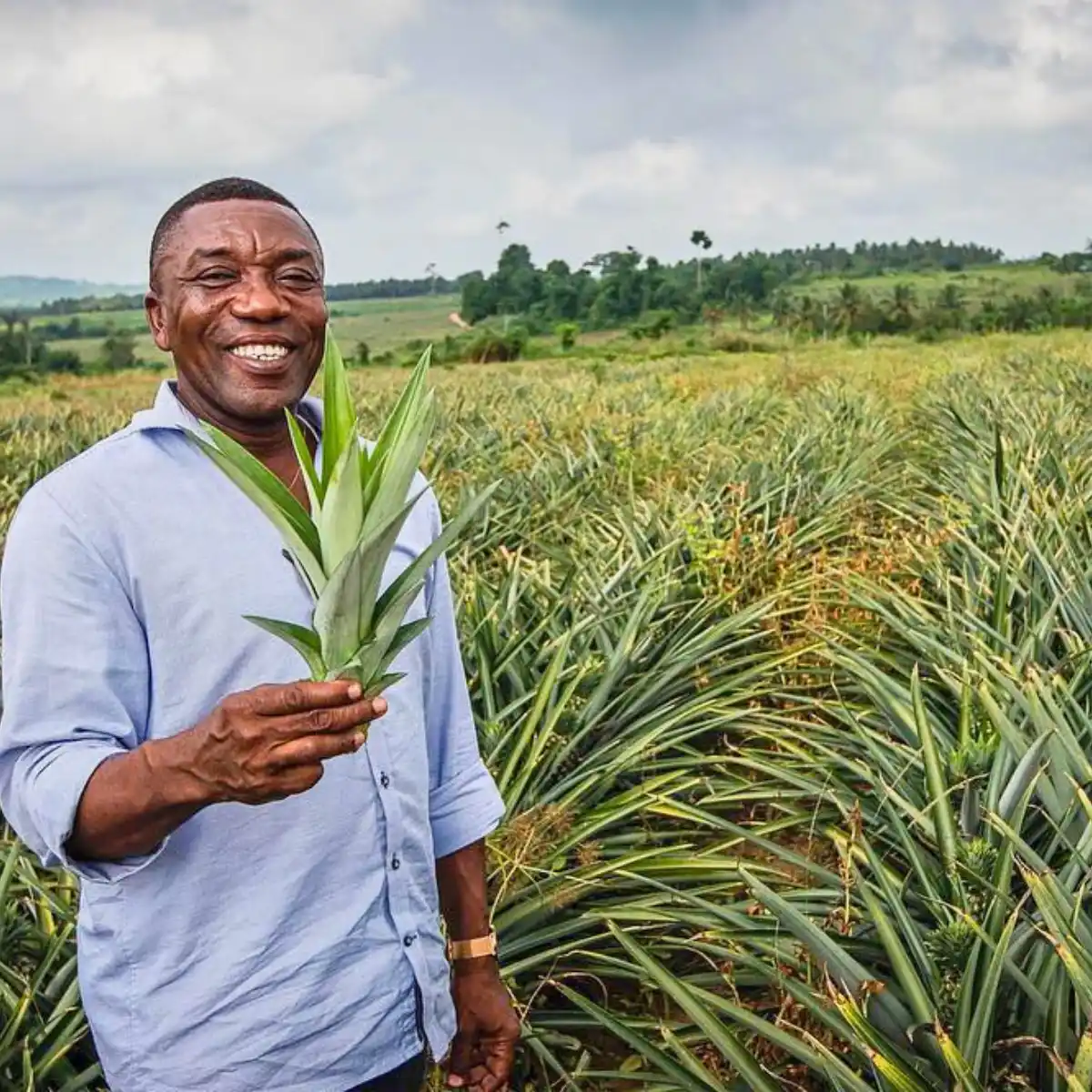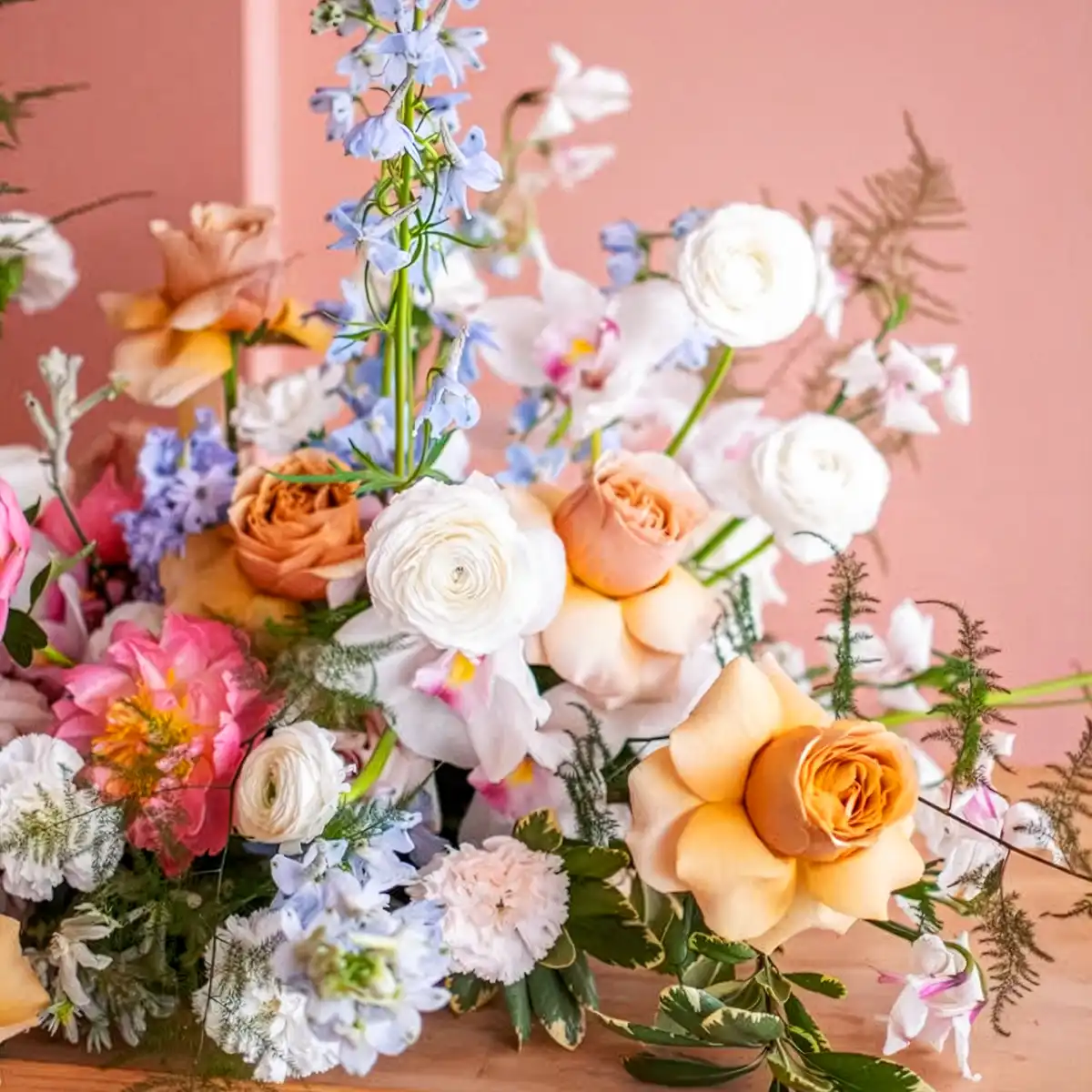The internationally recognized non-profit organization's garden, which honors water as our most valuable resource, is the result of a partnership between renowned architect Je Ahn and distinguished landscape designer Tom Massey. Project Giving Back, a grant-making organization, provided funding for the project. This year, the WaterAid garden was awarded a gold medal during the RHS Chelsea Flower Show, as a project that investigates the challenges posed by a constantly changing climate. It focuses on sustainable water management and includes a diverse range of plant species designed to withstand varying levels of rainfall.
The WaterAid Garden Wins a Gold Medal at the RHS Chelsea Flower Show
Tackling the challenges presented by an ever-changing climate, both garden designers have curated a vigorous varied oasis of adaptive planting, with an overall focus on sustainable water management. The plant species on display have been carefully chosen to take advantage of varying amounts of rainfall, with materials that have been reclaimed and repurposed for a lower carbon footprint. The WaterAid Garden brings together Je Ahn's architectural, art, and public experience with Tom Massey's horticultural and landscape design skills.
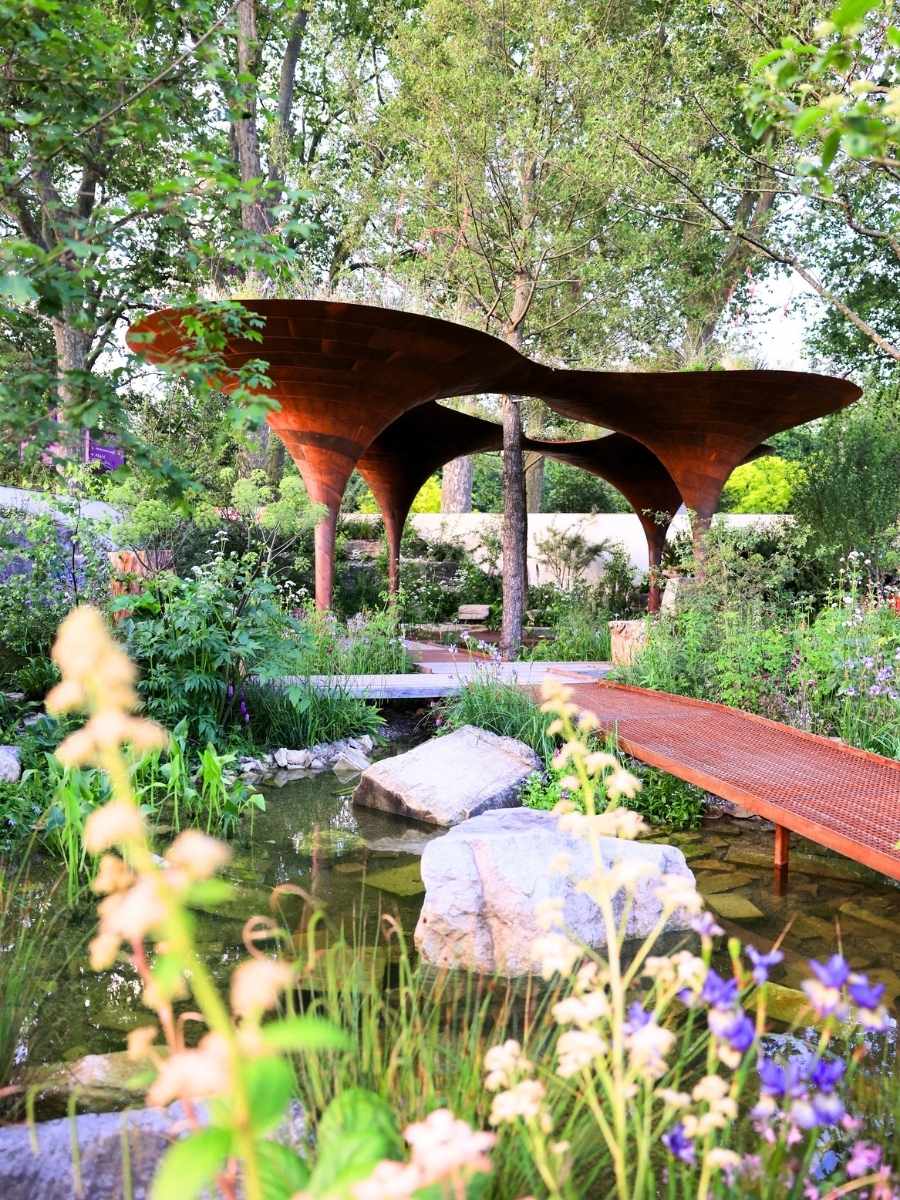
Photo: WaterAid/Oliver Dixon
Collecting rainwater is one of the most basic methods of providing high-quality water, but effective storage is often difficult. WaterAid uses a variety of simple, low-cost rainwater collection methods to provide essential water supplies to households and schools in areas prone to water scarcity or contamination. Rooftop collection means water can be harvested near home, so hours are not spent walking to collect water, and this technique has inspired the structure that both designers created for the WaterAid Garden, maximizing the surface area for rain to be collected and stored.
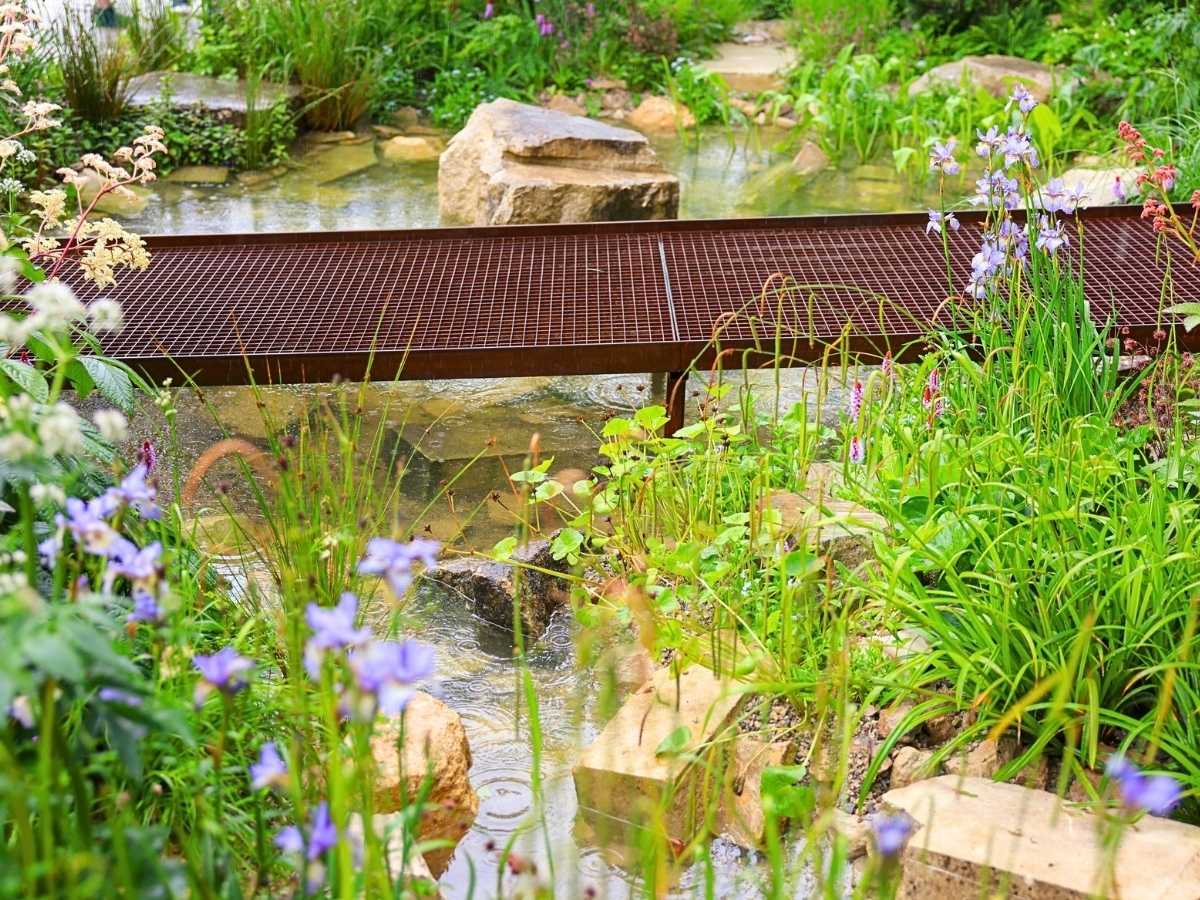
Photo: WaterAid/Oliver Dixon
More About the Environmental Focal Points of the Winning Project
Tim Wainwright, chief executive at WaterAid comments on the environmental focal points of the winning project:
“We’re thrilled that The WaterAid Garden has been awarded a gold medal; it’s an amazing recognition of the beautiful, innovative design and the important message behind it – that water is precious, and we need to manage it sustainably to keep it flowing, whatever the weather.
Almost one in ten people globally lack clean water, and climate change is making the situation worse as more frequent flooding contaminates fragile water sources, while longer droughts dry up springs. At WaterAid, we are supporting people living on the frontline of the climate crisis, helping to ensure a reliable supply of clean water, which enables communities to thrive. It is this work that has inspired our award-winning garden.”
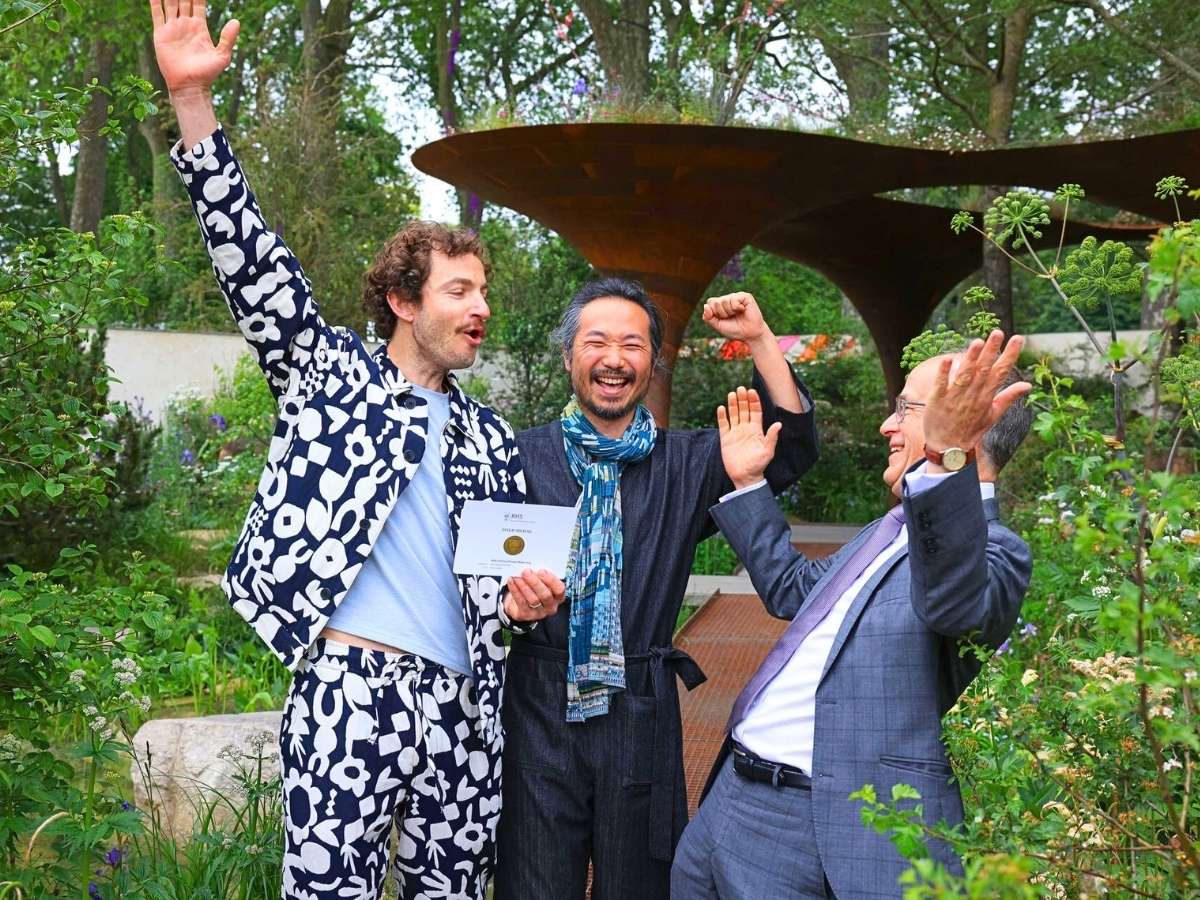
The climate crisis is a water crisis, and water is responsible for 90% of natural disasters, with more frequent and severe floods polluting water sources and droughts drying up springs. The WaterAid Garden addresses the challenges posed by a constantly changing climate. It focuses on sustainable water management and includes a colorful array of plant species designed to cope with varying amounts of rainfall, as well as reclaimed and repurposed materials for a lower carbon footprint.
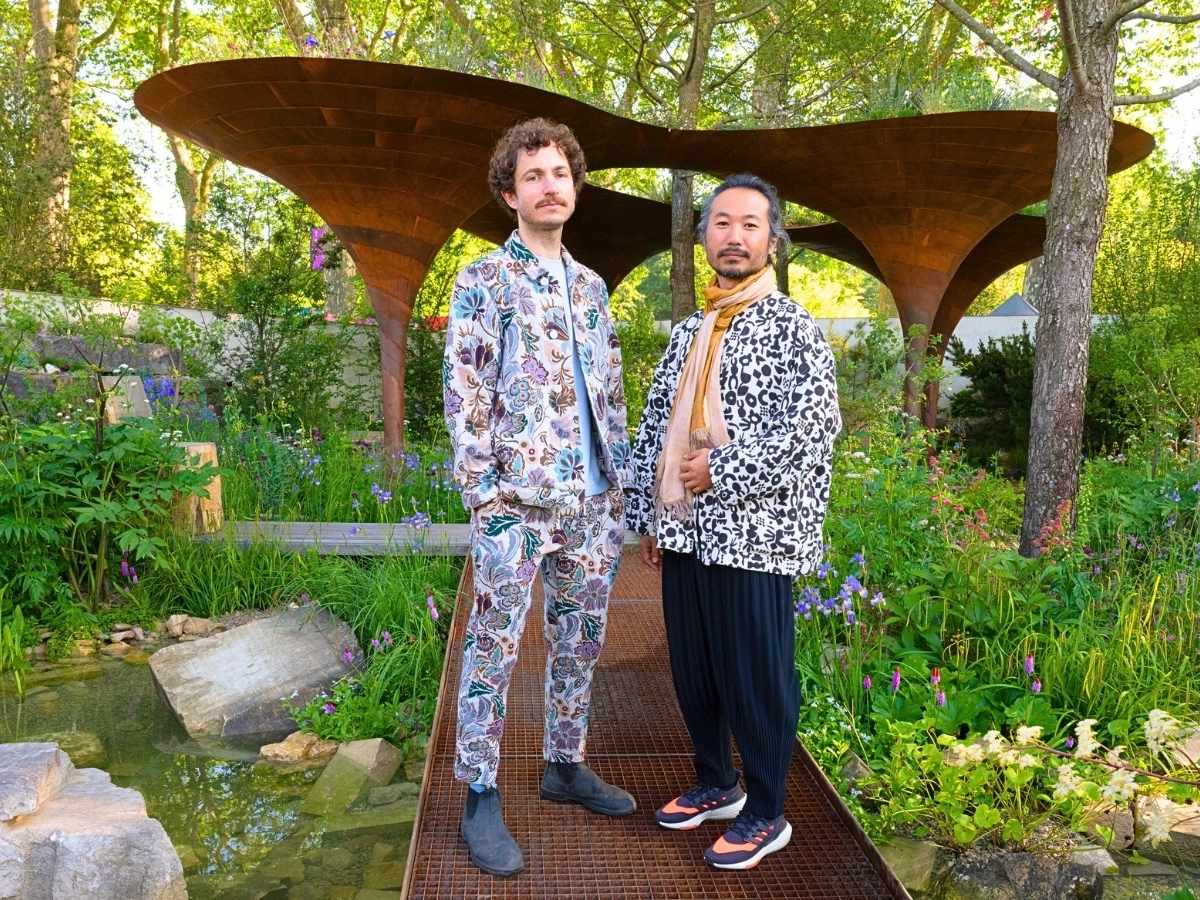
The thought-provoking design centers on a rainwater-harvesting pavilion inspired by WaterAid's work with communities around the world to develop sustainable water solutions. This structure harvests rainfall efficiently, filtering and storing it for drinking and irrigation while also slowing the flow and providing shade.
Co-designer Tom Massey said:
“I’m absolutely delighted The WaterAid Garden has been awarded a gold medal! This has been an exciting and mammoth undertaking, creating a garden that not only looks striking but demonstrates how clean water changes lives and how innovation can help us adapt to an unpredictable future. It’s been an amazing experience working alongside Je Ahn, WaterAid, Project Giving Back, the teams at Landscape Associates, Cake Industries, Hortus Loci, and everyone else who has contributed to the garden.
As our climate changes water scarcity and insecurity are becoming more commonplace – here in the UK and around the world. I hope everyone who visits the garden gains a real sense of the importance of sustainable water management and what’s possible when we all come together.”
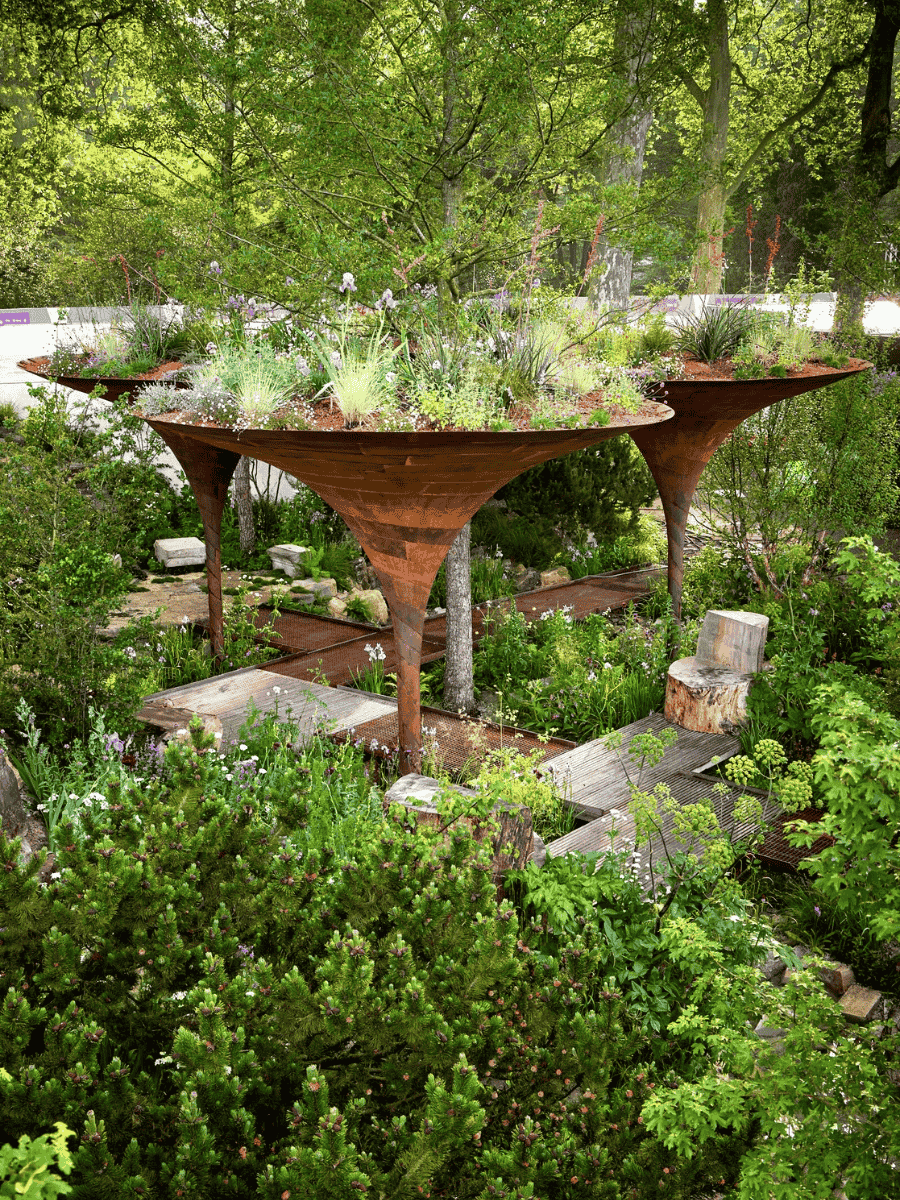
WaterAid and The Structure of the Garden
The garden was created by a forty-two-person team that included structural engineers, metal workers, designers, landscapers, nursery growers, and water feature specialists.
It was home to the tallest trees at this year's show, the Alder trees, which stand about 16 meters tall and were chosen for their adaptability to changing weather. Alder wood hardens in water and can remain submerged. The roots contain nodules that capture nitrogen and improve soil fertility, as well as the ability to absorb toxic heavy metals from the ground, assisting in the restoration of waste industrial land.
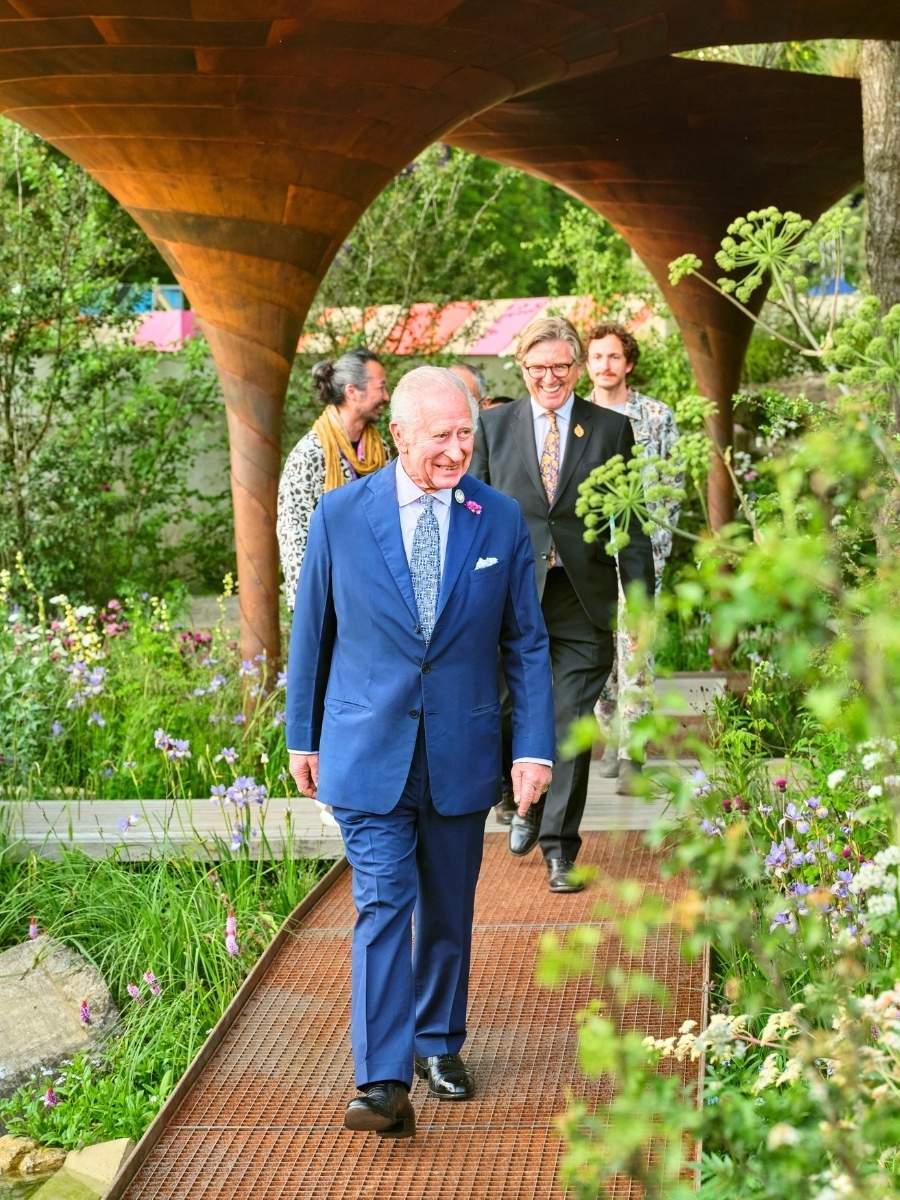
Photo: WaterAid/Daniel Herendi
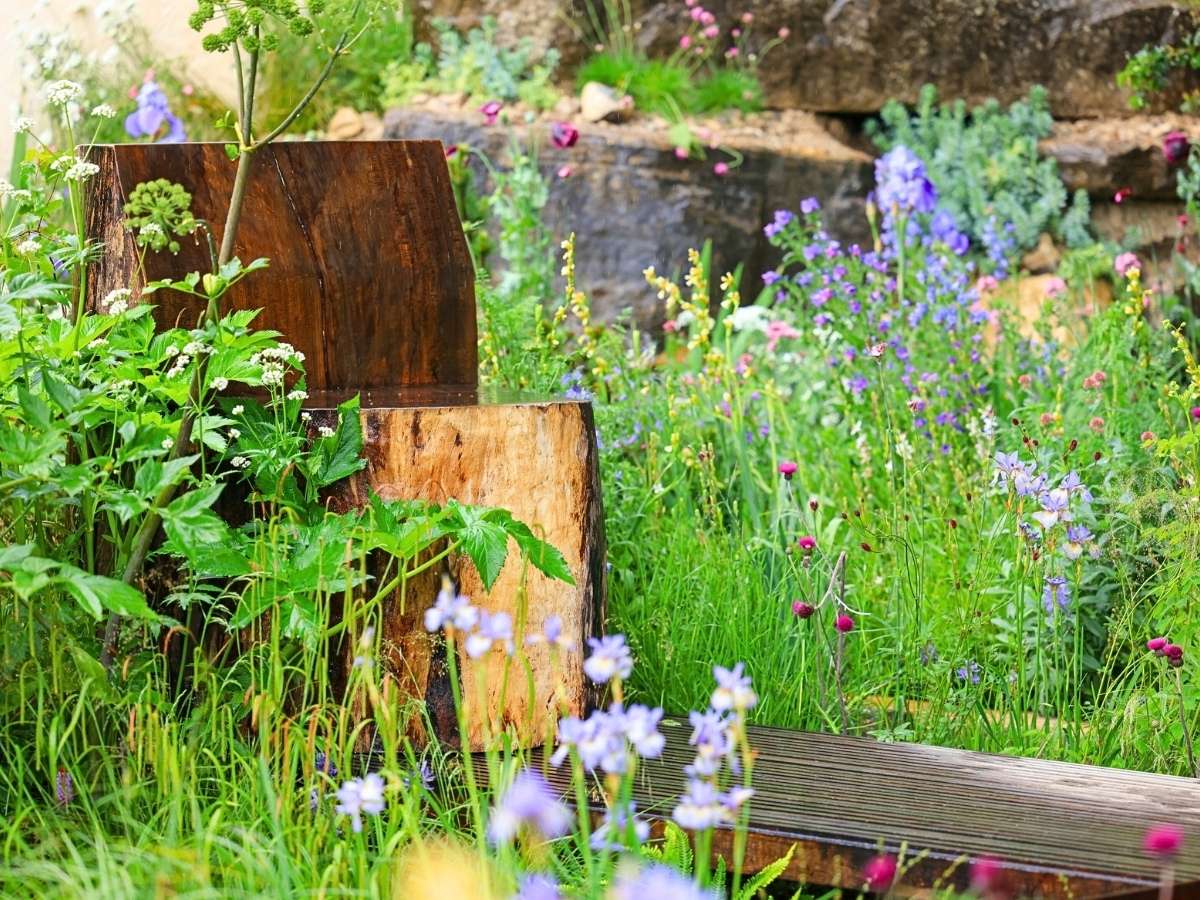
Co-designer, and architect Je Ahn of Studio Weave, added:
“I’m so proud that our garden has won a Gold medal. This is my first time creating a garden for the RHS Chelsea Flower Show, and it has been a brilliant collaborative effort, and so wonderful to watch it come to life and relate a powerful message. Ultimately, the garden brings a message of hope, showing how resilience and innovation can help us all to adapt and flourish in the face of the climate crisis. I’m looking forward to seeing our garden have a lasting impact in its final home in the north of England and inspiring a new generation to be more water-wise.”
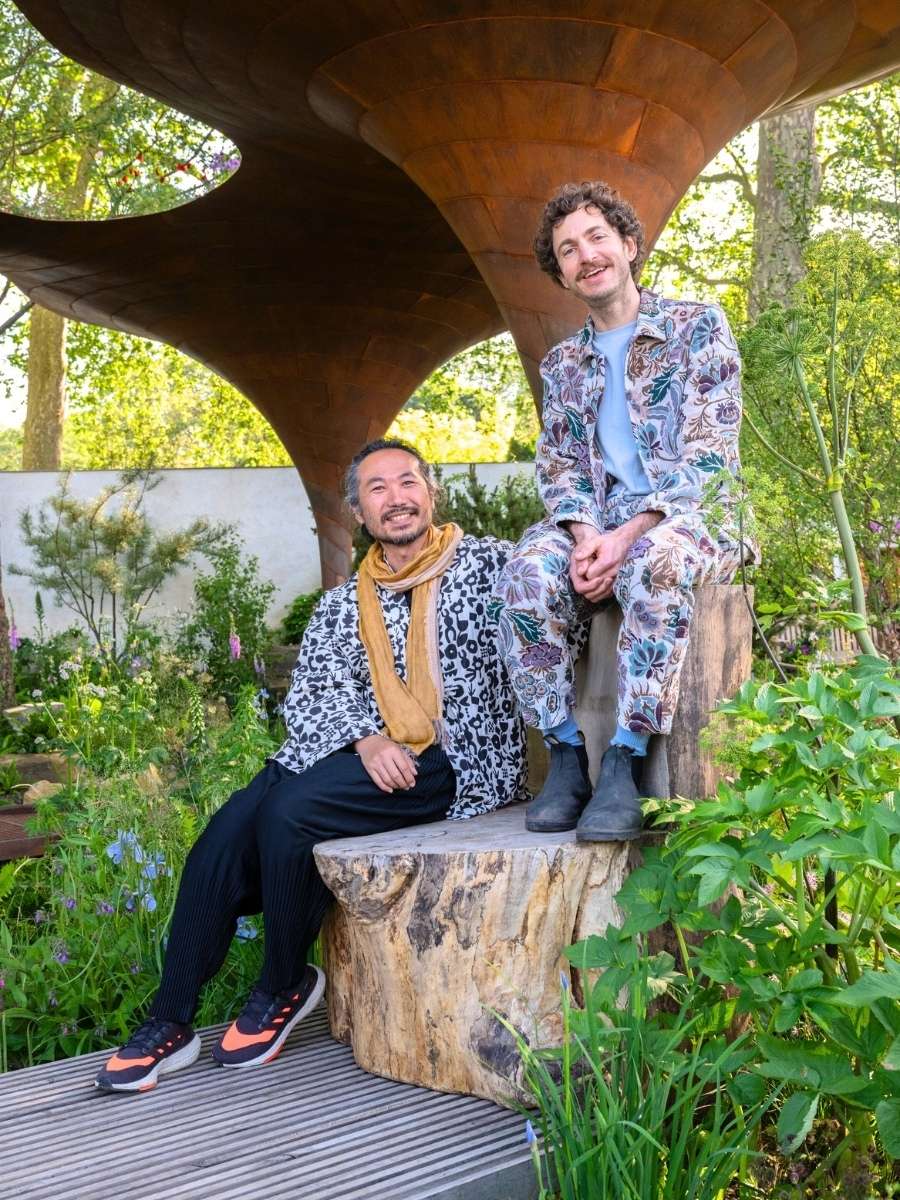
Photo: WaterAid/ Fiona Hanson
The garden also featured dozens of unusual plants, including Eriocephalus africanus, which is indigenous to South Africa, and, more commonly in the UK, the Red Yucca, which is ideal for gardens in the UK because of its ability to withstand extreme cold while also being tolerant of drought conditions, allowing it to easily withstand the harsh British climate and its increasingly extreme and unpredictable weather.
Following the show, the WaterAid garden was moved to a permanent location to educate future gardeners about effective rainwater collection and water conservation in gardens.

